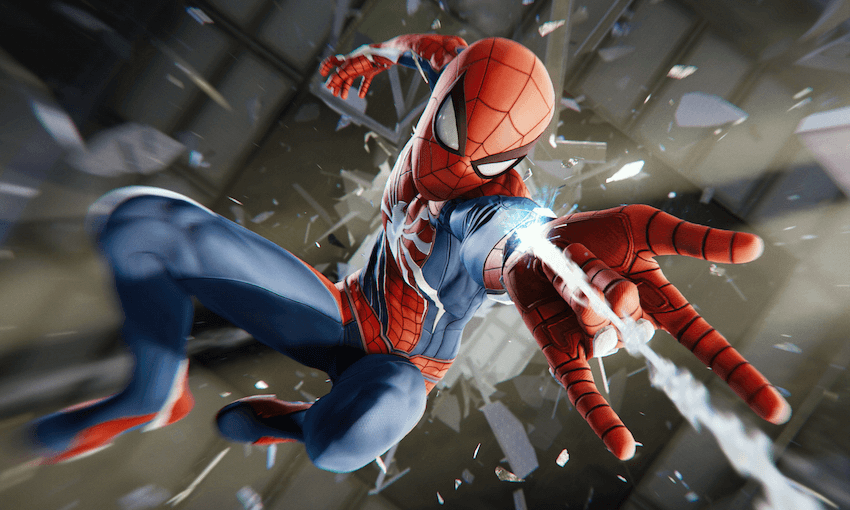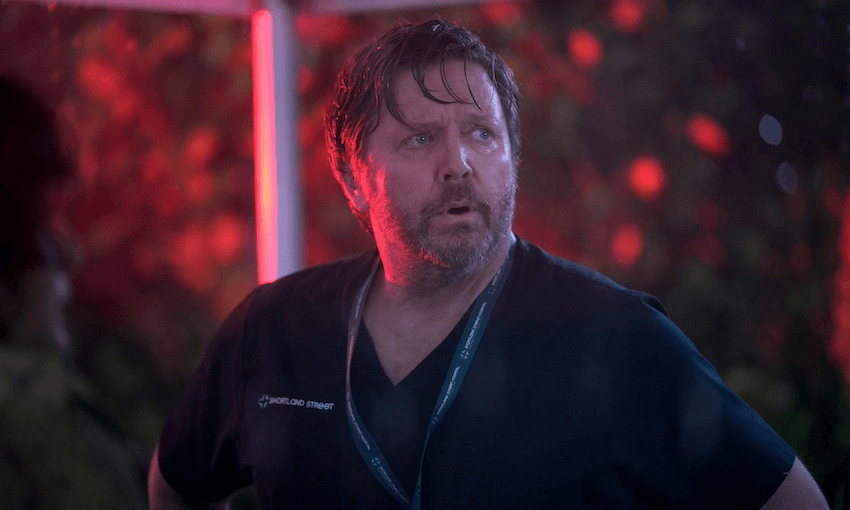What did some of our contributors realise about their much-beloved artform – the vaunted video game – this year?
Sam Brooks, gaming editor: You don’t have to do it.
There’s always a ‘you gotta do it’ aspect to any form of media – be it a film, a television series, an album, a book, a gig – it’s the one exemplar of the form that you absolutely have to consume if you’re to be considered having a worthwhile opinion on it. For television, it might be Game of Thrones or The Handmaid’s Tale. For podcasts? Serial. And so on and so forth.
For gaming, that method of thinking has two problems: It’s a lot more expensive to play a game, which can retail from anywhere from $79 to $120. Also, it takes a lot more time to play the games that are considered the essentials. Spider-Man could set you back twenty-five hours. Assassin’s Creed: Odyssey, an easy sixty. Red Dead Redemption, if you’re not still playing it, are you even a real gamer?
It was with this third game that I finally learned that I actually didn’t need to play it. Nobody was going to dethrone me from my position of gaming editor at The Spinoff solely because I didn’t spend seventy hours playing a game that did not seem to want me to play it at all (there’s a review of this game sitting somewhere deep inside my soul, and it is not particularly kind).
Games are an artform. Games are also meant to be fun. I’d argue that every piece of art or media is supposed to be enjoyable – but there are different forms of enjoyment. Say, the enjoyment of Katamari Damacy is very different from the enjoyment of Anna Karenina.
This year, about twenty-five hours and maybe a third of the way through the story of Red Dead Redemption 2, I realised that this game was not the kind of fun that I liked – and that was okay. Not everything is for everybody, and it’s about time the gaming medium caught up to that.
You don’t have to play everything. You’re still valid if you don’t.
Adam Goodall, contributor: Grace Bruxner
I discovered Melbourne developer Grace Bruxner’s work through her keynote at this year’s Play By Play Festival. Her keynote’s worth watching – it’s a really charming talk about what draws her to ‘tiny games’ and dealing with unhealthy work practices in the independent development sector. More than that, though, her games are extremely worth playing. Almost all of her games are about walking around adorable foreign worlds with minimal interaction; they’re warm and funny, like walking through a museum staffed by cheerful plush toys.
Most of them are free, like my favourites Alien Caseno, in which you visit a casino built by aliens who only have a second-hand idea of what a casino is, and Journey to the Party, in which you walk to a party and have to deal with a bunch of spooky monsters on the footpath. But last month, Bruxner released The Haunted Island, A Frog Detective Game, a game about a frog detective who investigates a haunted island. It’s got silly characters who think about things in silly ways and the story has this wonderful Golden Books logic to it and I loved it and I think you might love it too. It’s only $5 on itch.io, which is the storefront you should be using because it’s a significantly better deal for the developer than Steam.
Tof Eklund, contributor: Boyfriend Dungeon.
The huge success of Kitfox Games’ Boyfriend Dungeon Kickstarter slew me. This is the game that I’ve always wanted but never knew I wanted: combination dungeon crawler and queer dating sim, where you *ahem* can go on dates with the magical weapons you meet in “the dunj” – after they turn into smoking hot dudes, women, or nonbinary (enby) folks! Speaking as an enby, it’s uplifting to see a game treat enbies as real, worthy of respect, and even (gasp!) attractive. I think I need to get myself a bladesona.
Uther Dean, contributor: Doing one thing at a time.
The thing that both surprised me the most and has done me the most benefit in 2018 is embarrassingly simple. It’s teaching myself to focus again. I spent the last few years wondering why I was being much less productive when it felt like I was doing so much more. I was the most stressed I’d ever been and had basically nothing to show for it. It took several near scrapes with professional rock bottom to realise that my obsessive layering of tasks – writing while listening to podcasts, replying to emails while watching TV, living the whole of my life with Twitter open on my phone in my hand, and on and on and on – wasn’t the productivity hack that I thought it was. It was the opposite. Doing everything at once made sure that I would do nothing ever. Half-assing a whole bunch of different stuff at once is not an additive situation, you’re multiplying everything by a fraction so it all suffers.
So I decided to only do one thing at a time. When I write, I write, with podcasts set aside for walking (and laundry). When I reply to emails, I reply to emails. I’m even working hard on not checking my phone while watching TV – I kept finding myself unable to remember what happened in shows I love because as much as I love them, there’s always more Reddit to scroll through. I am not, at all, advocating for the rejection of your phone. I’m not a monster.
It’s just that when I use my phone, I just use my phone. And, guys, if you think being on your phone is good, wait until you try it without the irritating background noise of your friends waiting for you to stop looking at your phone. It is, at least for me, surprisingly difficult to just do one thing at a time. Sometimes I feel slow and sluggish, sometimes the siren call of overstimulation can become quite unbearable. But those feelings pass. At least I hope they do. Just doing what you’re doing, ignoring the stimulus and whole-assing a thing gets stuff done quicker and better. You just gotta get used to living with your thoughts again and, uh, if anyone has any solutions for that – hit me up.



